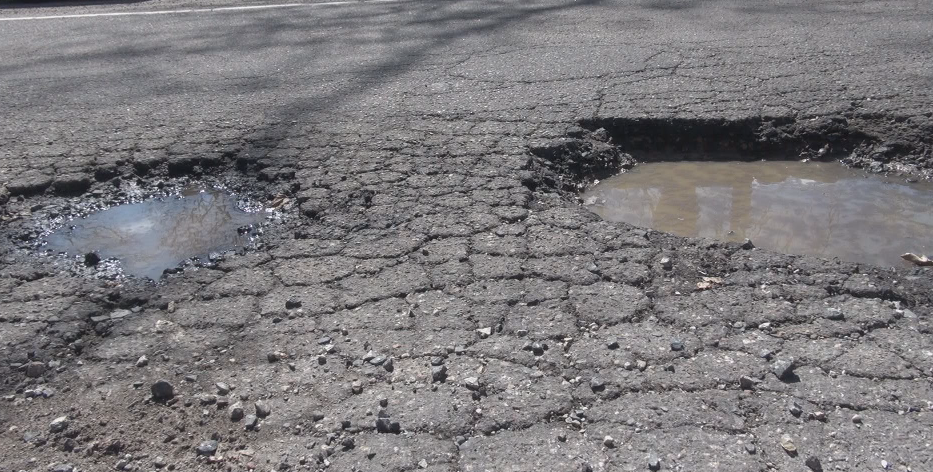After one of Minnesota’s coldest and snowiest winters in recent history, potholes have started to litter St. Paul roadways.
Sophomore John Gauger said he has noticed more potholes this spring than in the past, something he hopes the City of St. Paul addresses.
“I understand that the city also has a lot of other big issues, but you know, I think it is definitely an issue just all over,” Gauger said. “They’re around, and while it is just an inconvenience, it’s also something that definitely needs to be addressed.”
Potholes are caused when moisture seeps into roadway cracks—a common occurrence when snow melts in the spring. When that moisture freezes, the cracks expand and eventually fall apart.
According to the City of St. Paul website, crews use either a winter mix or hot mix to fill potholes. The winter mix of softer, thicker asphalt is compacted into a pothole in below-freezing temperatures until around late March or April when crews then transition to a hot mix. The hot mix uses the same asphalt as new roads and can last up to several years.
The Minneapolis City Council allotted an additional $1 million to speed up the city’s pothole repairs Friday.
But when the potholes are still on the roads, Signal Garage Auto Care Assistant Manager Ethan Derhy said the most important thing you can do to avoid damaging your car is to slow down.
“If you’re not going too fast over the potholes, you can hit them and not do too much damage,” Derhy said. “It’s always going to loosen up your suspension a little bit, but you’re not as likely to damage parts if you’re slowing down a little bit.”
Derhy said the garage has seen countless tire problems caused by potholes this spring. Suspension issues and dented rims are also frequent reasons for repairs. He warned drivers that if they aren’t careful, they could end up spending more than they might expect.
“Easily when it comes to suspension it can go into the $1000 range pretty quickly,” Derhy said.
To report a pothole in St. Paul, drivers can contact the city’s Street and Bridge Maintenance Division.
Briggs LeSavage, Rebecca Mariscal and Scott Sikich contributed to this report.

